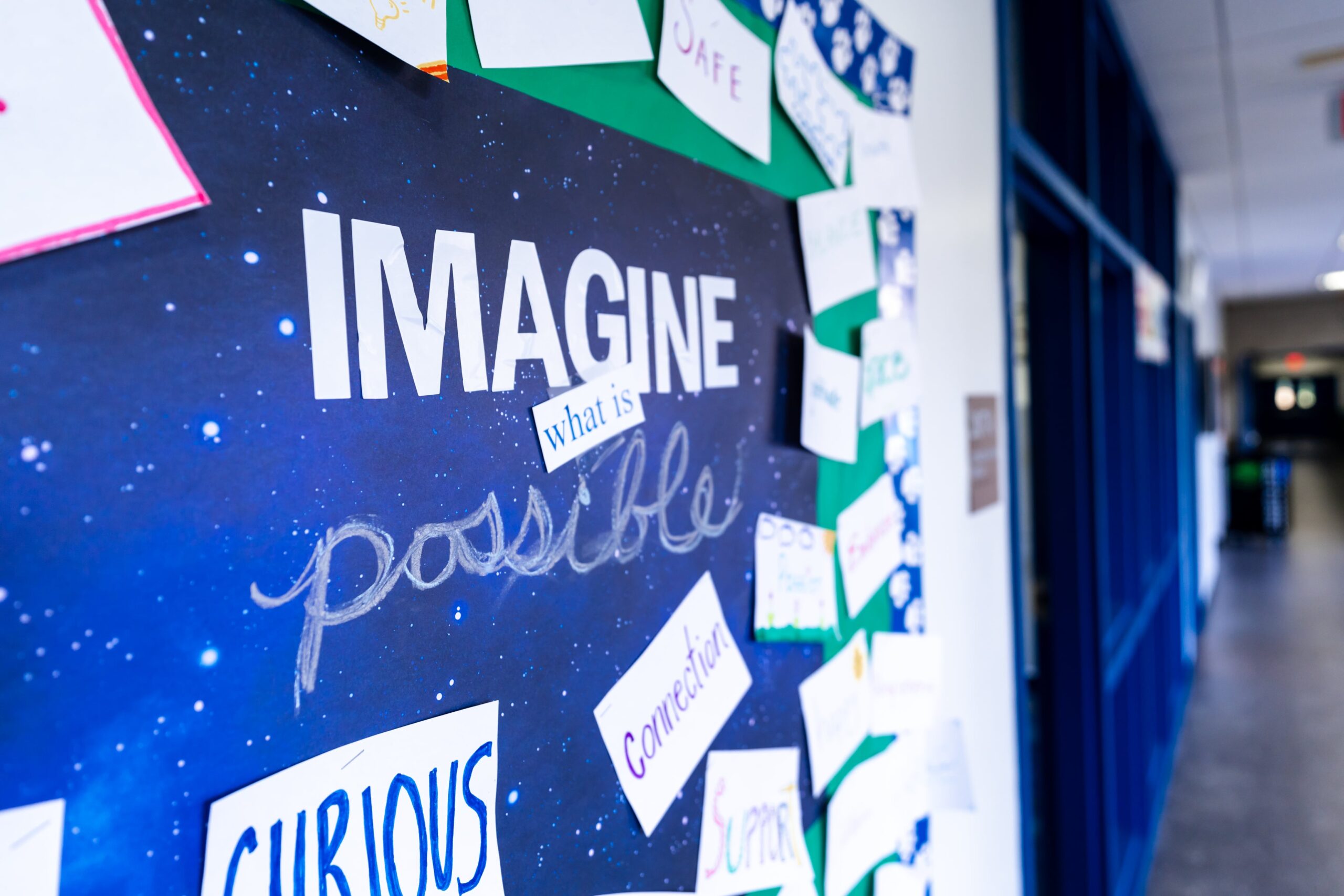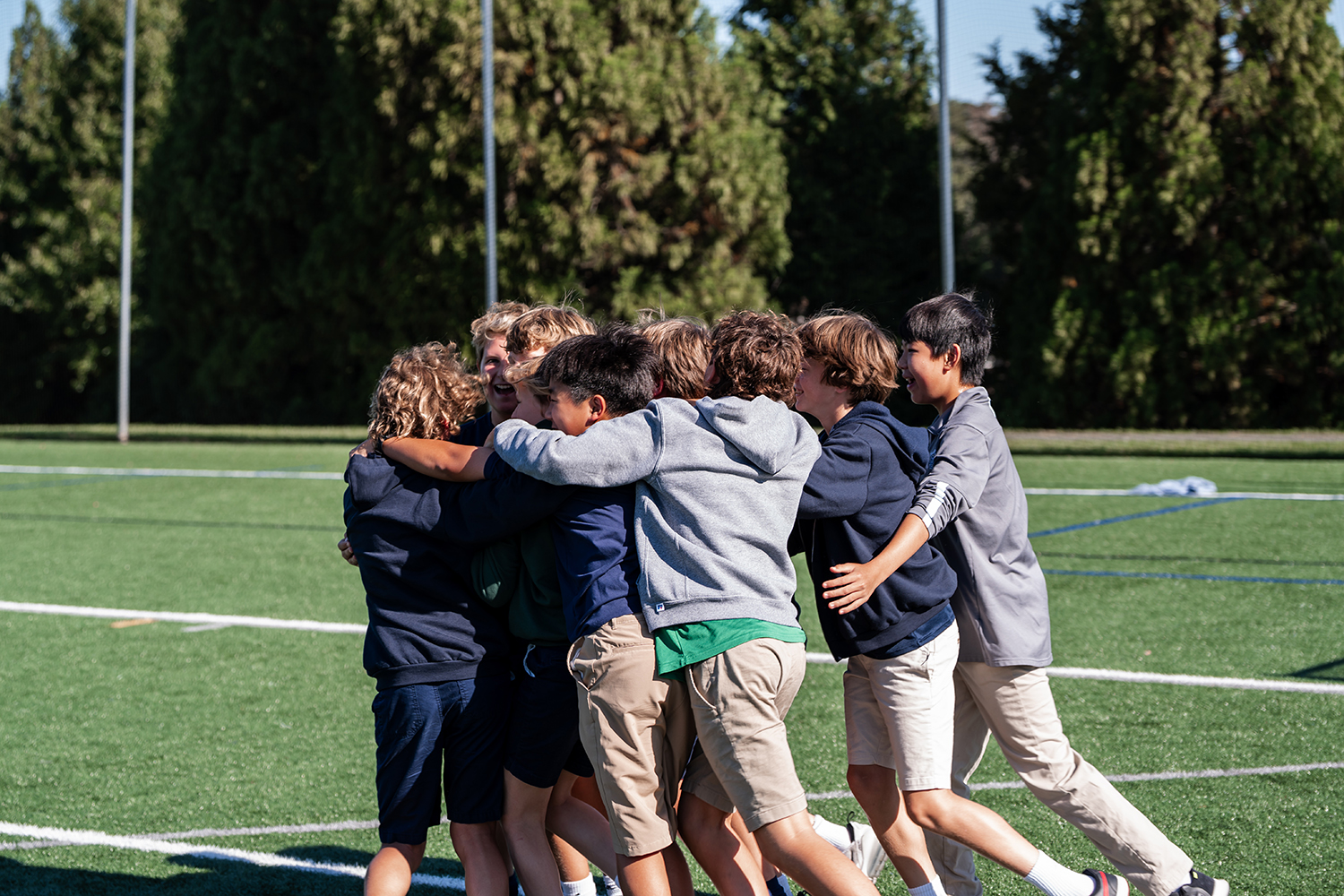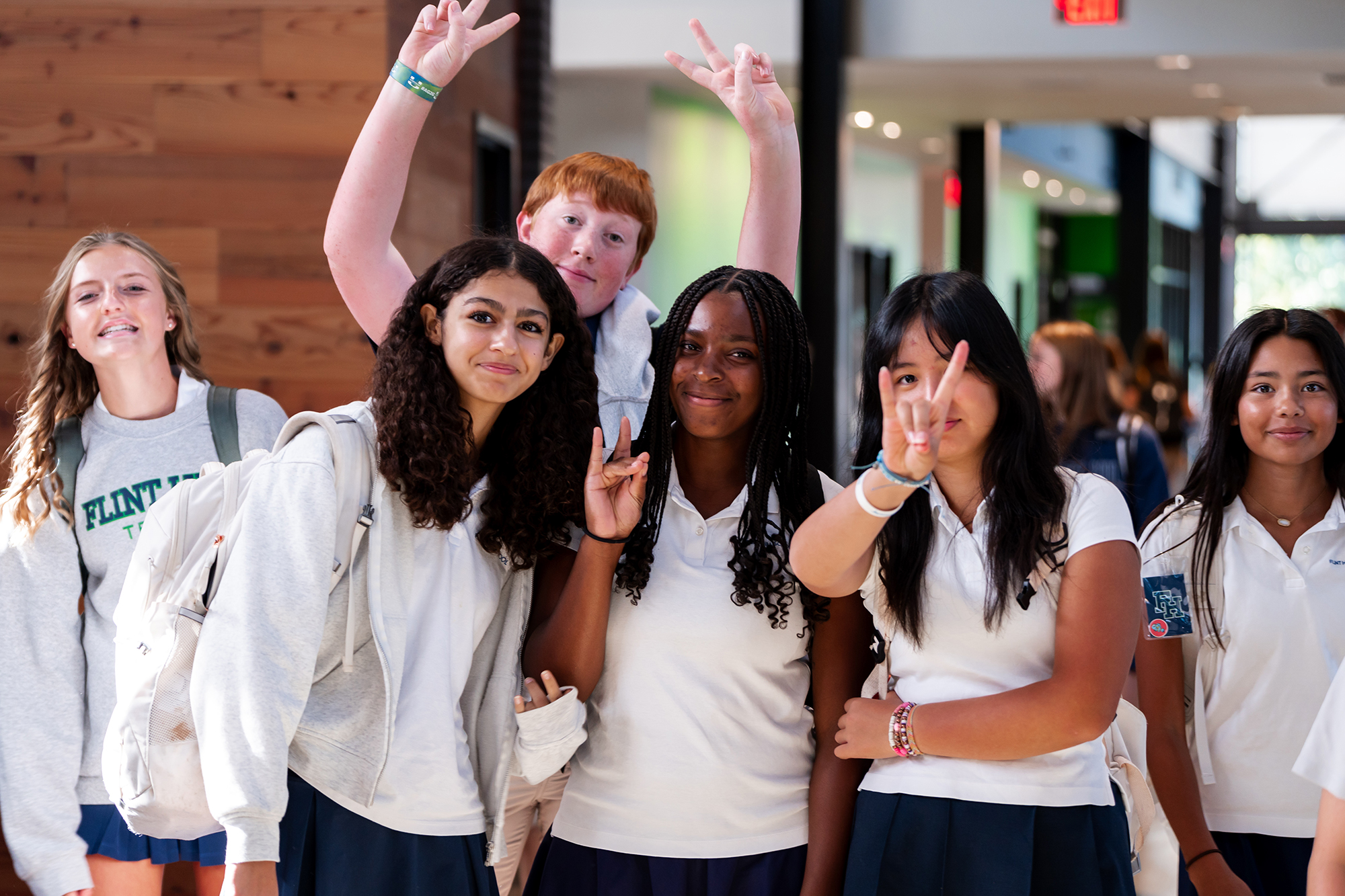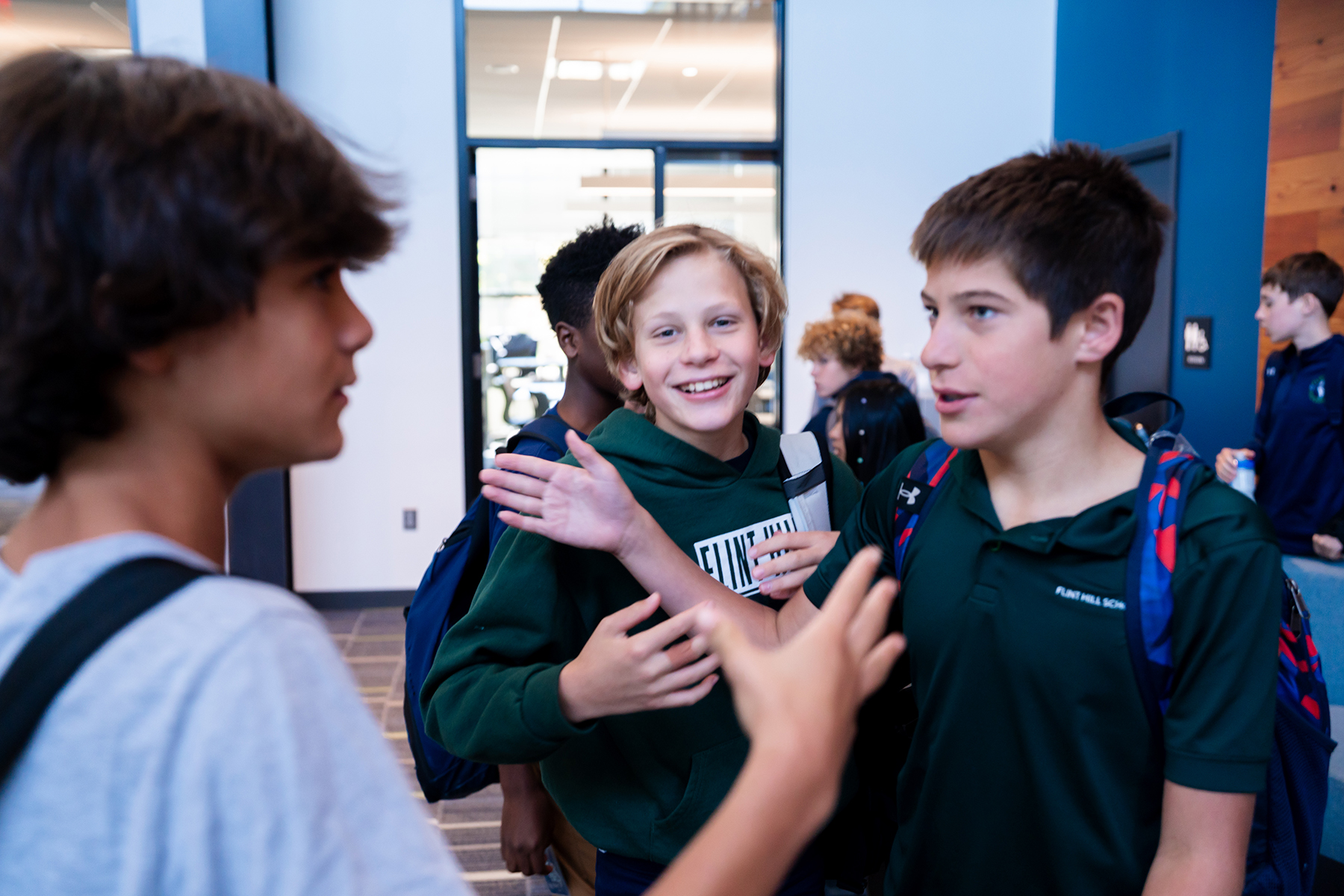LEARN MORE ABOUT FLINT HILL
HUSKY HIGHLIGHTS
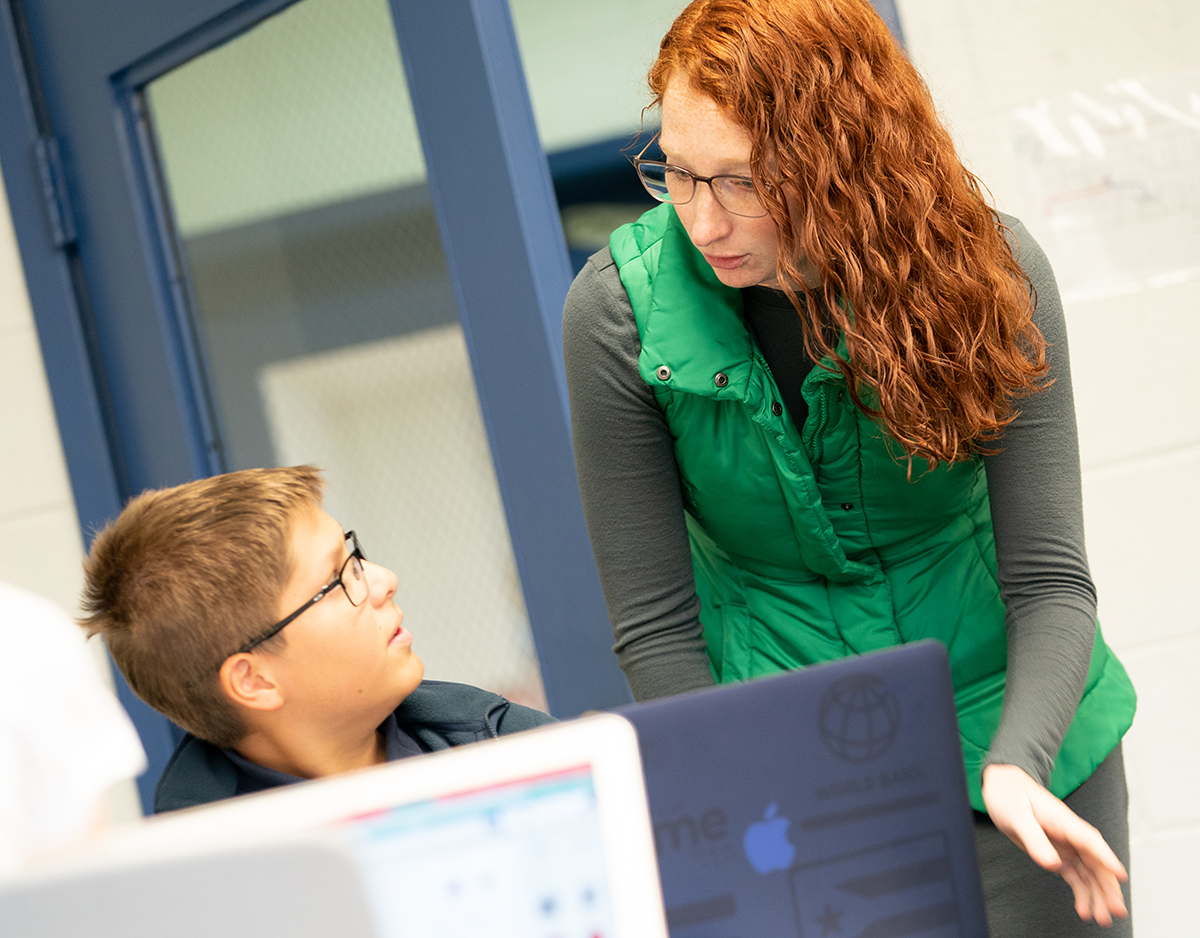
August 9, 2022
Written by Flint Hill Admission Team
Teacher Spotlight: Erin Mahony, Middle School Math
Erin Mahony likes to tell her students, “Do whatever makes your brain happy.” She wants each student to get to know themselves as learners, and she’s more than happy to help them get there, whether it’s in her advisory or math class.
Tell me a little bit about why you enjoy teaching math.
I think for me, it comes down to the fact that there's one right answer, but multiple ways to get there. At the end of the day, it always makes sense. And most of the time, especially with some of the topics that I teach, you can check your answer and just kind of guarantee that you're correct.
At the beginning of the year, I ask the students, “Why is math important?” And most of them say, well, “It's everywhere. It's all around us.” I think most of us are pretty passive in our interactions with math. So I like to get the students to be able to think about how to actively interact with math in a daily way. A good example of that is probability. It's so hands-on and they have had so much exposure to it — and they don’t even realize it. We really break down what they’ve already heard. What does it actually mean to be one in a million?
What is your favorite thing about teaching seventh and eighth graders?
I've always had a passion for this age group. Going into teaching, I thought that I would want to do high school. And then in my internship, I just realized how middle school students are so malleable. They're really trying to figure out who they are in these two short years, and what works best for them.
I love being a small part of that and helping them run through trial and error: “Here's a study strategy. Let's see if that works out for you.” I always say, “Whatever makes your brain happy.” And that doesn't necessarily mean that it's the same thing that makes the student next to you. The kids kind of make fun of me for saying that, but it’s really about helping them understand who they are as learners and what works well for them.
They're also just so weird and strange and funny. Every day is new and interesting. I love getting them to understand a little bit more about themselves before they leave us to go to the upper school.
Tell me about your advisory class.
It's actually my favorite part of our Middle School. So it’s a really small, intense group of 10-11 students. We start every morning together, at least 20 minutes. We believe it's really important that every student is acknowledged by name at least once a day, and that they acknowledge each other by name. It ends up being a family. We have inside jokes. We go on field trips together. We've eaten lunch together most of the week.
Being able to interact and mentor and really go to bat for a small group of students gives me so much joy. We [teachers] call them our kids; we just take ownership of them. We end up having really great relationships with their parents. And when we have our weekly team meetings, if a student in my advisory comes up, if someone mentions that the student seems off or is missing assignments, that’s when my role really kicks in.
I go meet with the student. We make a plan together and then execute it. And I'm going to follow up with them and follow up with other teachers. When they walk across that stage in five years, I am filled with so much pride. I'm so happy with how far they've come.
What do you think sets Flint Hill apart from other schools?
From a student perspective, we really know every kid who walks through that door. We know who they're friends with. We know what their passions are. We know what they struggle with. There is an adult in the building that they feel connected to, that they feel safe going to, that has their back. Most of the time it's their advisor, but a lot of times it's two or three adults. If, for example, a student loves math, I might be that person for them. Or the opposite: if they're making really great strides in my class and they haven't been great at math before, we might have a closer bond than I might have with other students. Every student here has at least two adults who really know them, who really get them, and who they can go to for anything big or small.

As a faculty member, this is an incredibly collaborative place to work. If I come up with an idea and it's half-baked, I can go to a colleague and they can help me work through it and help me figure out how it’s going to work. As an example, one of the projects I’ve created for the class is to measure the playground and then scale it down. Our technology specialist said, “Why don’t you 3D print it?” I had never 3D printed anything. I had no idea where to start or how to help the kids, but he said, “That’s OK, I’ll be there.” Without hesitation, everyone says to go for it, try it, do it.
One of Flint Hill’s five core values is to blaze the trail. We think a lot about what that means to the students. But I also definitely take advantage of it, of what it means as a faculty member. I can try something and see how it goes. And then if it works, great! If it doesn’t, I can rework it or get rid of it. I really appreciate the independence that I have to make those decisions in my classroom and for my students.
LEARN MORE ABOUT FLINT HILL
Fill out the form to receive updates from our team.
RECOMMENDED FOR YOU
A VAIS committee completed its 10-Year Accreditation Visit in April 2024. The committee reported its immediate findings in this short presentation to faculty and staff.
Middle school lays the foundation for the social-emotional and organizational skills your child will need for college success, and that doesn’t come from test prep...
As a middle school parent, your role is not to be completely hands-off and let them fend for themselves in every way, nor is it...
To parents navigating these crazy middle school years, I hereby pass along five tips for how to achieve home-life balance.



